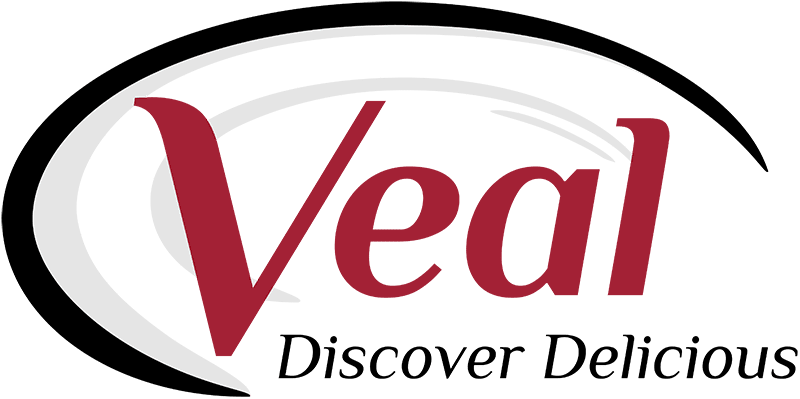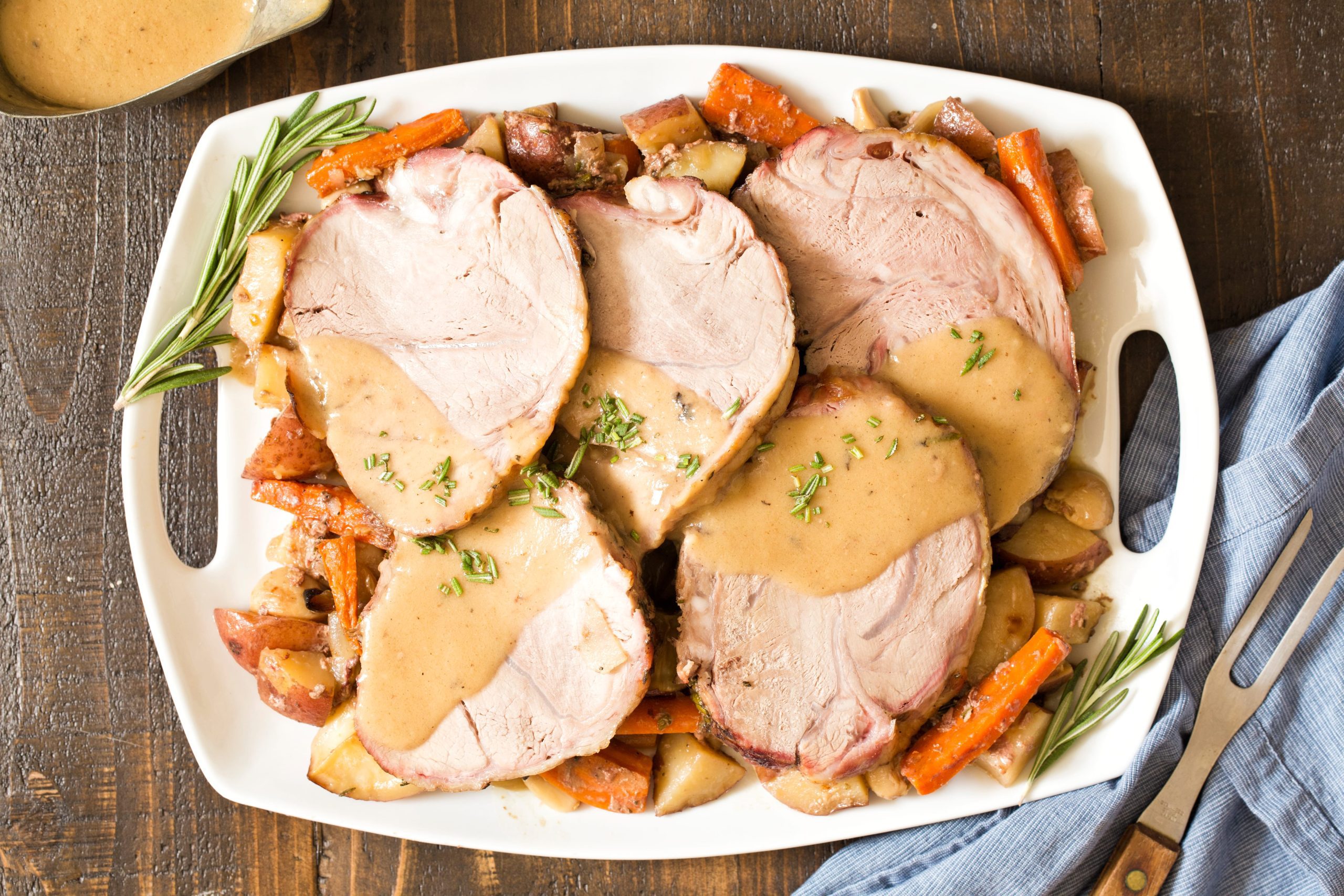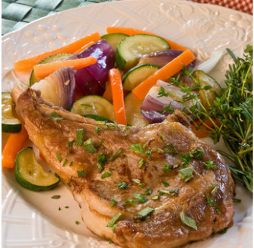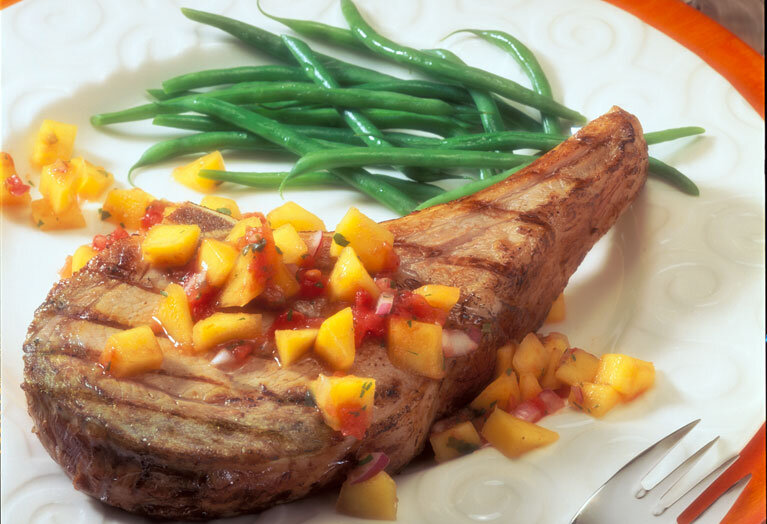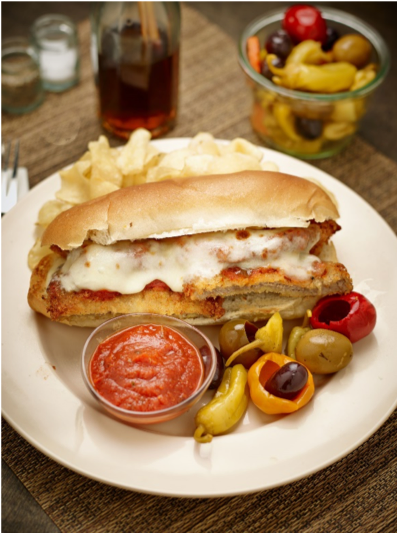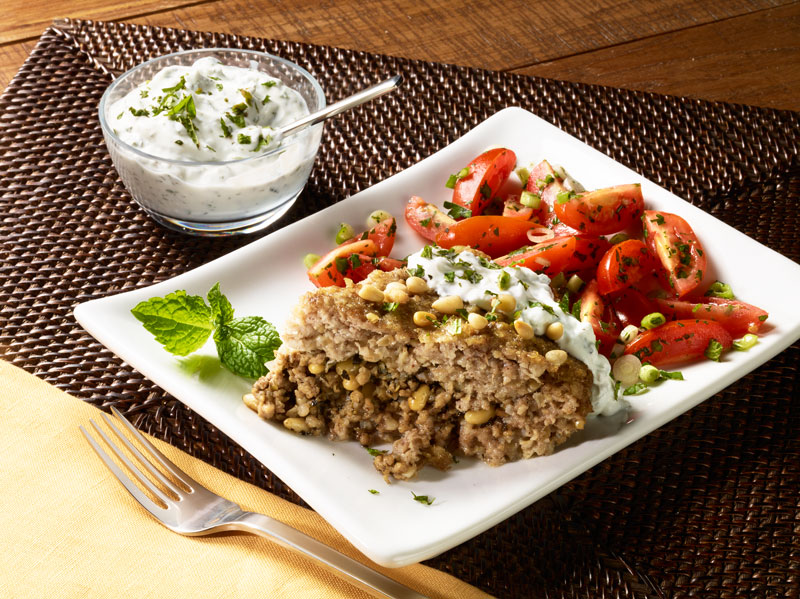July VEAL BLOG
Promotions
The Beef Checkoff funded veal promotions program recently had an opportunity to partner with Chef’s Roll, a global culinary community, on a new foodservice recipe project. A video was created that featured a decorated chef preparing two delicious veal recipes, Veal Shoulder Loin with Charcoal Eggplant Puree and Wood Grilled Veal Leg Sausage with Creamy Asiago Polenta. This video will be shared with over 1 million culinary influencers.
Veal Quality Assurance
You Tube Campaign Attracts People to Learn How Veal Calves are Raised
Funding from the National Beef Checkoff has enabled veal farmers to address misinformation about how veal calves are raised through new videos on the website www.VealFarm.com.
To elevate awareness for one of the videos, “How are calves raised?” a You Tube ad campaign was launched June 4th and so far, has generated 1.71 MM impressions and more than 25.9k video views and growing. Most interesting is how long the audience sticks with the content – 56% of users watch through to the first 25% of the video and more than 32% watch through the end. A 32% complete view through is extremely high. To see the video, visit the website Veal Farm.
Influencer Food & Farm Tour
To help amplify the veal industry’s story, an influencer tour was held June 25-27 with seven online digital influencers. The group enjoyed wonderful veal dishes for culinary inspiration and toured veal farms in Pennsylvania and Indiana. Following the trip, each blogger received a special delivery of veal cuts to create a veal recipe and feature online. The group was strategically selected from across the U.S. including Orlando, New York City, Philadelphia, Sacramento, Chicago, and Raleigh. Their combined reach is over half a million. Click on link to one of the blogger’s post.
The tour addressed their questions and uncertainty about how veal is raised today and as a result of the tour all seven said they would promote veal to others. These two comments are great examples of their feedback:
“This was an epic trip – a real adventure as we took a deep dive into the world of veal. We all learned so much. “
“I’m always happy to support the people who run our US farms, help communicate the science of agriculture, and share their stories.”
We will have additional measurement of the impact of this effort as their online content appears in July and August. The following companies provided key support to the tour: Catelli Brothers, Marcho Farms, Midwest Veal, Strauss Veal Feeds and Mountain States Rosen.
State Beef Councils
For Immediate Release
6/13/19
FARM TO GROCERY CART IMMERSION EXPERIENCE
Bedford, PA – The Pennsylvania Beef Council (PBC) and the Northeast Beef Promotion Initiative (NEBPI) partnered to provide a unique “Farm To Grocery Cart” beef and veal immersion experience for representatives from the Ahold Delhaize group. Those in attendance specifically represented the Giant Martin Brand which has 172 retail locations within the northeast.
The event took place on Tuesday, June 11 where retail professionals were able to get a closer look and deeper understanding of the beef and veal industry in PA by meeting the faces that are dedicated to providing quality care and a consistent end product.
The group spent the morning at the Bow Creek Farm & Cattle Company located in Hershey PA. The family-owned and operated farm and small retail store shared their passion and pride for the industry. The Hess family works hard daily to provide quality care to their cattle which ensures a wholesome, nutritious and delicious beef product for customers to enjoy.
Tour attendees then traveled by bus to Marcho Farms located in Souderton, PA. Marcho Farms’ story began in 1969 when company founder Wayne Marcho purchased his first calf at a local livestock sale. In the years that followed, he and his family have seen their small, 2-person veal farm grow into a fully integrated, forward-thinking organization. Each step of the way, from selection, housing and feeding to transportation, processing and delivery is undertaken with the same sense of pride and unwavering commitment to quality and ethical behavior that began the business over 46 years ago.
“Opportunities like today really put into perspective what it takes to produce safe and wholesome beef and veal and the journey it takes from farm to fork. We look to help answer consumer questions about production through the information that my team and I saw first-hand today,” said Patrick Sanagursky, Meat & Seafood Category Manager- Giant/ Martins. “We want consumers to know even when they shop at a retailer like Giant that there is still a farmer working hard to produce that product.”
The beef and veal immersion event engaged the retail community by allowing them to experience first-hand how beef and veal is raised today. Much has changed over the years and with continuous improvements, both beef and veal have great stories to tell from nutrition to animal care to sustainability.
“Our mission is to be a unified voice for our beef and veal partners by sharing their legacy of commitment with the families enjoying dinner with us, “Nichole Hockenberry, PBC Director of Marketing and Communications, remarked, “We feel that there is no better way to share the beef and veal story than to connect the dots from farm to plate. Meeting the faces and shaking the hands of those that raise the quality protein- beef and veal, has really made the most meaningful impact over the years of those that make future beef purchasing decisions in the retail sector.”
To learn more about the Pennsylvania Beef Council, visit www.pabeef.org.
Media Contact: Nichole Hockenberry, 814-623-2698; nhockenberry@pabeef.org.
###
The Pennsylvania Beef Council is a producer-controlled and funded organization, which administers the Beef Checkoff Program in Pennsylvania. The Beef Checkoff Program assesses $1 per head on the sale of live domestic and imported cattle, in addition to a comparable assessment on imported beef and beef products. Checkoff revenues may be used for promotion, education and research programs to improve the marketing climate for beef.
REGULATORY AFFAIRS
FSIS Issues Compliance Guideline on Meat and Poultry Kit Labeling. The Food Safety and Inspection Service (FSIS or the agency) announced the availability of the agency’s guideline on kit products that contain a meat or poultry component. The guideline helps establishments and other food handling facilities determine whether a kit product needs to be prepared under FSIS inspection and how it should be labeled. FSIS has determined that assembling a kit product that contains meat or poultry need not be done under FSIS inspection, if these conditions are met: (1) the meat or poultry component is prepared and separately packaged under FSIS inspection and labeled with all required features; (2) the outer kit label identifies the individual components in the kit; and (3) the outer kit label identifies the product as a single unit or “kit.” Kit products with a meat or poultry component are still under FSIS’s jurisdiction and must meet FSIS requirements to ensure they are not adulterated or misbranded. FSIS’s notice, which includes the guideline, can be viewed here. FSIS will accept comments on the guideline until Sept. 9, 2019.
PHIS Industry Test Environment to Re-Open for Meat and Poultry Exports. The Food Safety and Inspection Service (FSIS) announced that the Public Health Information System’s (PHIS) Industry Test Environment will open to all meat and poultry exporters from July 15 through Dec. 13, 2019. During this time, industry may test entering applications to understand PHIS functionality through the user interface, batching applications and machine-to-machine/web services technology. Anyone interested in testing during this period should send their name, email address and establishment number to PHISTechnicalQA@fsis.usda.gov for more information.
FSIS Posts Label Backlog Update and Tips for Nutrition Label Approval Process. The Food Safety and Inspection Service (FSIS) posted it is experiencing a delay of about 17 – 18 business days in evaluating labels requiring review before use.
FSIS posted a tip that “meat and poultry establishments need not change the nutrition format on their labels. If meat and poultry establishments decide to voluntarily modify their products’ nutrition facts panel to meet the revised FDA format requirements, one FSIS sketch approval must be on file for each new format.” FSIS proposed changes its nutrition labeling regulations for meat and poultry products but that proposal has not been finalized. The FSIS proposed rule closely matches revised nutrition label requirements in two FDA final rules published in 2016. FSIS published a Federal Register notice allowing the voluntary use of FDA’s nutrition facts label format requirements prior to FSIS publishing a final nutrition labeling rule.
Meat and poultry establishments have two options. They may keep their existing nutrition facts panel based on 9 CFR 317.300-317.400 and 381.400-381.500 regulations. Nutrition facts labeling formats meeting the FSIS regulations may be added to labeling through generic approval, and the new FDA format requirements are not applicable to these products. In the alternative, establishments may voluntarily update the nutrition panel to meet the new FDA requirements. More information about the FSIS proposed nutrition facts labeling changes and FDA changes can be found here.
CFIA Proposes Regulatory Changes Under its Food Label Modernization Initiative. The Canadian Food Inspection Agency (CFIA) proposed regulatory changes under its Food Label Modernization (FLM) initiative in the June 22 Canada Gazette. According to CFIA, the proposed regulatory amendments are intended to improve food labeling requirements regarding date marketing and storage instructions, food company contact information, foreign state of origin of imported foods, legibility and location, emphasized ingredients, test market foods, standard container sizes, and class names. The proposed regulatory amendments also purportedly would harmonize and streamline food commodity-specific labeling requirements.
FDA Extends Comment Period for Guidance on Alternative Name of Potassium Chloride. FDA is extending the comment period for the draft guidance entitled, “The Use of an Alternate Name for Potassium Chloride in Food Labeling.” Electronic and written comments will now be accepted until Sept. 17, 2019. The original draft guidance was posted in the Federal Register on May 20, 2019 and had an initial comment period that lasted until July 19, 2019. The guidance states that its purpose is to advise food manufacturers of FDA’s intent to exercise enforcement discretion for declaration of the name “potassium chloride salt” in the ingredient statement on food labels as an alternative to the common or usual name “potassium chloride.”
Internal links are funded and maintained by the Beef Checkoff. All other outgoing links are to websites maintained by third parties
